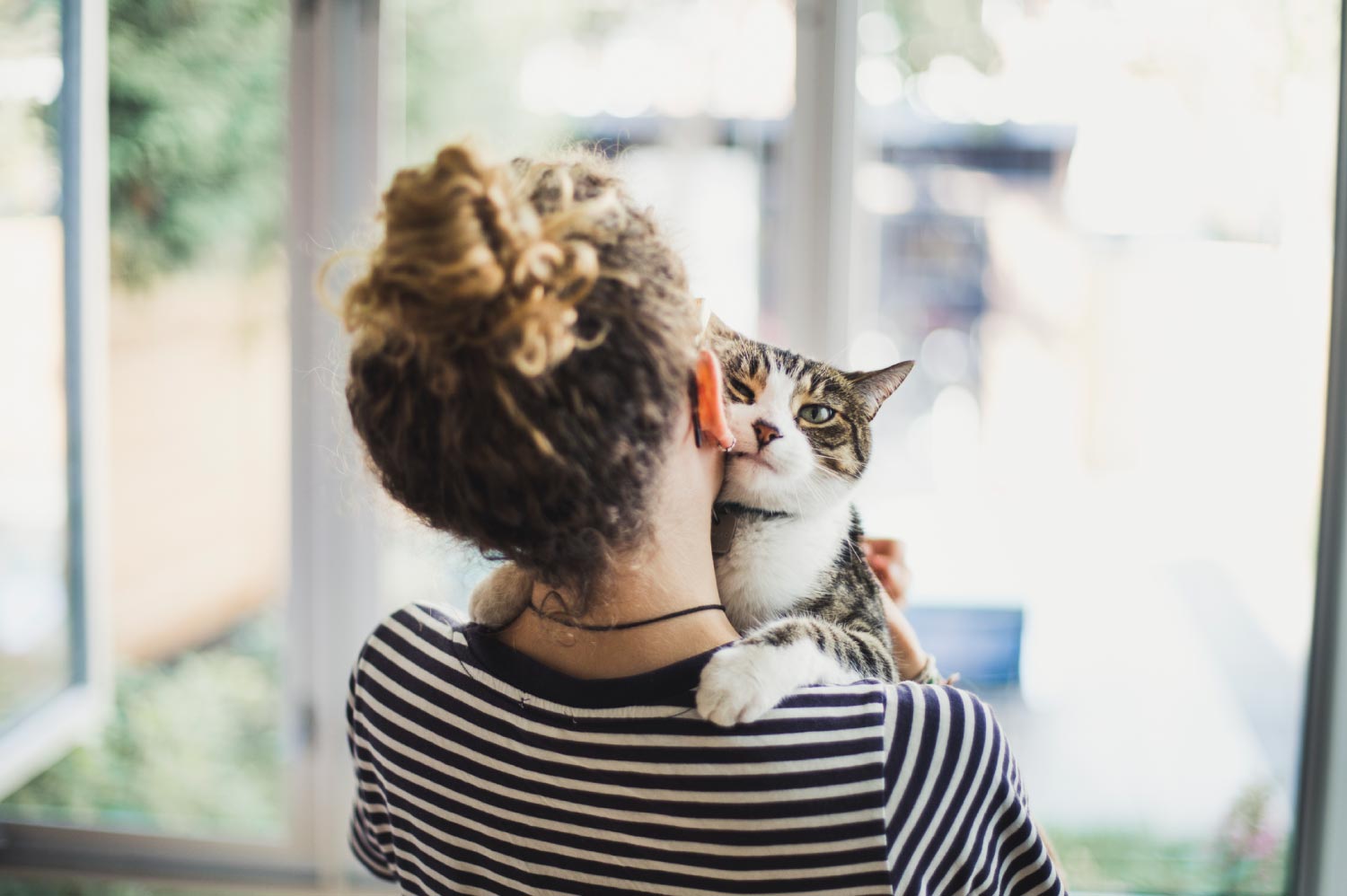
Bats may have their benefits, but you don't want them taking up residence in your home. This guide will help you understand bat removal costs.
Patience is key when it comes to cleaning after an extermination


Ask the exterminator how long you need to wait before you can clean your home.
You should wait a few days for basic cleaning, like wiping down counters and vacuuming.
Keep previously infested areas as dry as possible to prevent attracting pests to standing water.
You can usually return home a few hours after an exterminator has finished treating your home for pests.
Wondering if you should clean the house after a pest control service? The answer is yes, but only according to instructions from your exterminator to avoid undoing the treatments they applied. A visit from the local exterminator can be a huge relief—for one, no more late-night sightings of mice or roaches sprinting across the floor. Here's a full rundown of what you can expect after your exterminator sprays and how to keep pests away for good.
Your best bet is to ask the local exterminator how soon you can clean—and what type of cleaning is permitted.
Even after extermination, you might still feel a little “icky” at the thought of the uninvited bugs or rodents making themselves at home in your space in the first place. Plus, you might be worried about the effects of inhaling or consuming whatever the exterminator sprayed with. In that case, it’s natural that you’d want to get cleaning right away.
Your pro may say it’s fine to vacuum your home right away, but the may ask you to wait to mop for several weeks so that you don’t wipe up the treatment they sprayed down.
In other instances, exterminators might even discourage you from vacuuming for a couple of weeks. For example, to get rid of bed bugs, pest control companies often use the one-two punch of a spray and dust solution. That dust needs to hang around to do its job, so you don’t want to vacuum it up right away.
If the exterminator sprayed a pesticide that dries on surfaces—typically for cockroaches, ants, spiders, and other insects—it's often recommended you leave it undisturbed anywhere between a few days to a couple of weeks.
That said, you may be able to do minimal cleaning—like wiping down counters or some light sweeping—after a shorter initial waiting period.

Is it really safe to wait several weeks before vacuuming and mopping if your house has been sprayed? Yes—as long as the pesticide has dried, it should be safe for you, your kids, and your pets to go about life in your home. If the exterminator has to leave bait traps, however, request that they’re installed in spaces your babies (and fur babies) can’t access.
Do not sweep or mop if the exterminator left traps or baits for mice or rats. According to the Centers for Disease Control and Prevention (CDC), rodents and small animals can carry a hefty list of viruses and bacteria, many of which live in the feces and urine of these animals. Sweeping them up could release airborne pathogens.
If you find either of these, the CDC recommends spraying the area with a solution of water and a strong disinfectant like bleach. You'll then need gloves, a mask, and protective eye gear to clean up the area. Always discard urine or feces-covered paper towels in a sealed bag.
Once the exterminator has returned to collect the traps and given you the all clear, then you can begin your deep clean.
Follow these post-pest control cleaning procedures to restore your home.

In the initial hours after treatment, keep natural air flowing throughout your home by opening windows and switching on fans. Not only can this help with any lingering smells, but it could lower the rare chance of an allergic reaction to the products used.
Perhaps you called the exterminator in a hurry and didn't get to clear everything off the counter before they arrived. If there was any food hanging out on the kitchen or dining room table when the exterminator sprayed, toss it just to be safe.
Insects such as fruit flies, cockroaches, and pantry pests may have spent some time crawling over the food as well. Take this opportunity to improve your long-term pest control tactics by sealing all food away in airtight containers, such as plastic or metal food bins. Silverfish, termites, and a few other common nuisances love to nibble on paper, so they can still get through common food packaging when determined.
Back up your exterminator's work by sealing up all possible pest entryways in your house. Common trouble areas include:
Cracks along your baseboards
Windows
Doors
Eaves
Basement and foundation
Pipes and plumbing
Vent and HVAC systems
Dryer vents and small other entrances to your home
Even mice and rats can squeeze into holes as small as a quarter, so pay extra attention to the unassuming entryways.
Want to make sure you’ve covered all your bases? Our detailed pest guide breaks down how to keep bugs out of your house for good.
An infestation outside your home can be just as large an issue as one indoors. And in some cases, pests find their way inside because they've built a nest just outside a door or window.
Keep an eye out for areas where a pest would love to set up shop, such as woodpiles, open garbage or recycling bins, compost piles, or even unruly landscaping. Areas with too much moisture can also encourage pests to breed.
While you’re at it, start guarding your yard against common grass bugs. These unwanted critters won’t come into your home, but they can decimate your prized yard in no time.
Depending on the type of pest that invaded your home and the treatment the exterminator used, you may be able to do some light cleaning, such as wiping down countertops and sweeping floors, within a day or two of re-entering your home. In nearly every instance, you should wait a month or two before mopping or carpet cleaning.
Once you have the go-ahead from the exterminator to deep clean your house, you can tackle chores like:
Scrubbing walls
Wiping down windows and doors
Wiping down kitchen cabinets and appliances
Pulling out furniture and appliances to sweep behind and under them
Clean your sink
Vacuuming, mopping, and carpet cleaning
Steam cleaning your furniture
In the days and weeks following a pest control service, be sure to keep all areas inside your home dry. After being exposed to pesticides, the remaining pests will crave water and search for sources in your home. Be sure to drain or remove standing water spots and quickly clean up any liquids that spill.
The pests are gone, and your home is clean. Now let’s keep it that way.
After the exterminator has left, you can begin taking several steps to keep your home pest free.
Regularly clean your home: Many pests are attracted to garbage, dirty dishes, and overwatered plants. A simple house cleaning checklist for you and your family can ensure you stay on top of all the necessary tasks.
Schedule inspections: Leaky pipes are inviting to everything from gnats to cockroaches. Get a plumber to inspect your pipes and ensure there aren’t any leaks in your walls. Similarly, hire a roof inspector to make sure there’s nothing up there particularly appealing to pests like squirrels, raccoons, and nesting insects. If the exterminator suspects pests are getting into your home through your foundation, you’ll need to schedule an inspection with a foundation repair company.
Keep up with yard maintenance: Tall grass makes the perfect home for fleas and gnats, and tall trees with branches hanging onto your roof make it easy for squirrels to find their way inside your home. Mow your lawn, trim your trees, and, in the fall, dispose of decaying leaves—they’re a tasty treat for bugs like cockroaches.
Set traps and use treatments: If you live in an area with a lot of mice, they’ll likely invite themselves in for a warm nap in the winter. Set up mouse traps in the basement to catch the problem early. Similarly, if you know where bugs typically crawl into your home, you can use natural pest remedies like diatomaceous earth and boric acid to discourage entry (yes, boric acid is mostly safe for pest control).
Guarding your home against pests may sound like a lot of work, but it’s important—for your comfort in your home, for your health, and for your wallet. Getting ahead of potential problems not only keeps your home safe, clean, and comfy, but also keeps the overall cost of pest control lower in the long run.
One of the most common questions that pest control specialists receive is: “When can I return to my home after a treatment?” The answer will completely depend on the type of pest treatment and which pests you were dealing with in the first place.
According to the Environmental Protection Agency (EPA), you and your exterminator should only use pesticide solutions approved for indoor use. Your exterminator should also provide an EPA registration number so you can look up more details about the specific treatment.
In most cases, your family, including children and fur children, should be able to return home between 30 minutes and a few hours after spraying. In some cases, your exterminator may recommend keeping pets and small children away for a few hours longer.
When in doubt, ask the professionals. They’ll also be able to offer guidance on how long it might take for pests to start disappearing—and how soon you can start cleaning.
From average costs to expert advice, get all the answers you need to get your job done.

Bats may have their benefits, but you don't want them taking up residence in your home. This guide will help you understand bat removal costs.

If you have a serious rodent problem, you may need to know the cost of hiring a rat exterminator. We can help you estimate prices and control costs.

The average roach exterminator cost is between $100 and $600, depending on the species, infestation severity, and home size. Read on for a cost breakdown.

Mosquitoes can ruin any outdoor summer soirée. Prevent bites, itchiness, and annoyance by learning how to get rid of mosquitoes in your yard for good.

Wasps are a pain to share space with, but you have options for removal. While it’s best to call a pro, here’s how to get rid of wasp nests the DIY way.

“Water bugs” typically refer to a type of cockroach. Find out how to get rid of them instantly and keep them away for good in this handy DIY guide.